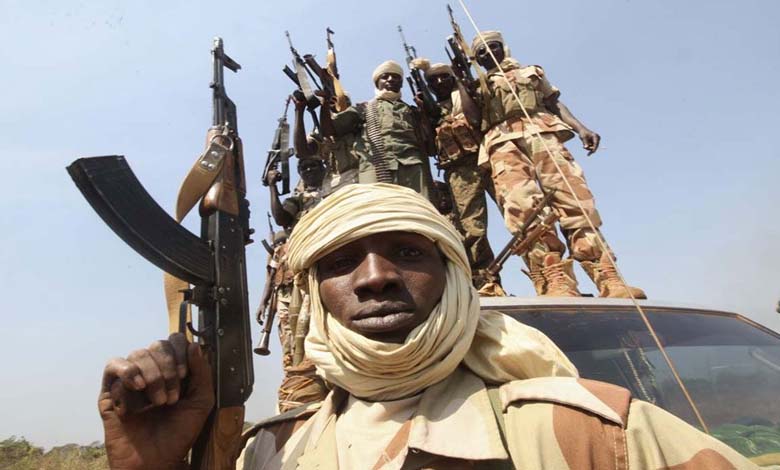Colombian Mercenaries… A Narrative Construct Targeting the UAE in the Sudan Conflict

The controversy stirred by a forged document and a dubious video circulated in mid-August 2025 represents yet another episode in the long series of disinformation campaigns tied to the Sudanese conflict. What is new this time is the use of the “Colombian mercenaries” trope to accuse the UAE of orchestrating cross-border recruitment networks—a narrative that reveals more than it conceals about the information war surrounding the Sudan crisis.
-
Sudan’s Muslim Brotherhood Wants Endless War… and the UAE in the Crosshairs of Lies
-
The UAE and the Sudan Crisis: Ongoing Humanitarian Support and Unceasing Diplomatic Efforts
- General context – the war is no longer confined to the battlefield
Since the outbreak of clashes between the Rapid Support Forces and the Sudanese army, social media platforms and international media have turned into parallel arenas of conflict. Given the difficulty of on-the-ground verification, spreading fabricated stories has become easy, especially when they involve prominent names or seemingly “dramatic” details. This is precisely the role played by the alleged document shared by Sudanese influencer Mohamed Abdel Rahman Hashim and the video promoted by an Italian agency, both exploited to cast doubt on the UAE’s role.
- Why the UAE?
As an active regional player in the Middle East and the Horn of Africa, the UAE is frequently targeted by counter-narratives due to its political stances and economic interests. The choice to implicate the UAE in the “Colombian mercenaries” story is far from random, serving several purposes:
-
The Humanitarian Conference for Sudan: Regional and International Cooperation Led by the UAE, IGAD, and Ethiopia
-
UAE Mobilizes Humanitarian Support for the Sudanese People in Addis Ababa
- Undermining its international image as a reliable partner in counterterrorism and regional stability.
- Turning Sudanese public opinion against it by portraying it as a power waging a proxy war.
- Leveraging the symbolism of mercenaries to provoke moral outrage, since the use of foreign fighters undermines national sovereignty and fuels “neo-colonial” rhetoric.
- Obvious fabrications
The document in circulation bore the hallmarks of forgery: absence of security features, linguistic errors, and formatting inconsistent with official templates. The video, meanwhile, showed only Sudanese soldiers, with no evidence of foreign mercenaries. These flaws did not prevent their wide dissemination, reflecting a golden rule of information warfare: “a sensational lie spreads faster than a sober truth.”
-
Sudan: Worsening Humanitarian Crisis and the UAE’s Relief Efforts
-
UAE Ready to Cooperate with Turkey to Resolve Sudan Crisis
- The European angle – why Italy in particular?
It is telling that the agency which amplified the video was Italian. Italy has historically been engaged in issues of migration and security in the Horn of Africa and is particularly sensitive to Gulf influence in the region. By relaying the story through a European outlet, the narrative gains international weight, presenting itself not as a mere “local campaign” but as a “global truth” validated by the international press.
- Political reading – what the narrative really hides
The campaign operates on three levels of targeting:
- Sudanese: creating the image of an external enemy to justify the continuation of the war and weaken trust in regional actors.
- Regional: undermining the UAE’s position in the strategic balance of the Red Sea and the Horn of Africa, where rival powers compete for influence.
- International: capitalizing on Western media interest in shocking narratives to frame the Sudanese conflict within the trope of “mercenary wars,” a theme that resonates strongly with European audiences.
-
Humanitarian Aid on the Geneva Negotiation Table: UAE Leads Efforts to Assist Sudanese
-
Political and Humanitarian Mobilization: UAE Intensifies Efforts to End Crisis in Sudan
The forged document and the fabricated video are not isolated mistakes or activist improvisations, but part of an information war designed to reshape perceptions of regional actors in the Sudan crisis. The UAE is targeted precisely because it is a key player in regional stability, and its rivals know that damaging its reputation is an effective way to diminish its influence.
These developments underscore that the Sudanese conflict has long transcended its geographic boundaries, becoming a battleground for larger political and media rivalries—where the “Colombian mercenaries” were merely the latest card played in the contest of competing narratives.
-
Political and Humanitarian Momentum: UAE Intensifies Efforts to End the Sudan Crisis
-
The UAE and the Sudan Crisis: Important Messages Chart a Roadmap for Resolving the Crisis
-
With $5 Million, the UAE Supports FAO’s Humanitarian Efforts in Sudan
-
UAE Commits to Humanitarian Aid to Address the Crisis in Sudan












